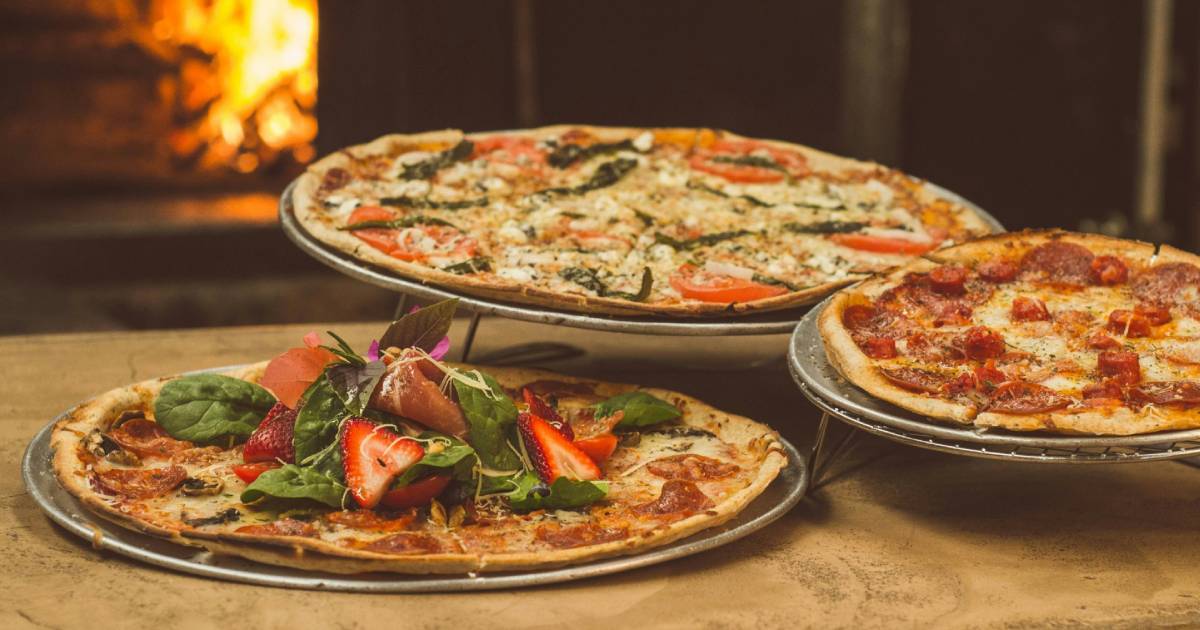
Pizza Restaurants Add Brand Licensing to the Menu
By Mark Seavy
Restaurant operators competing for consumer attention are putting brand recognition on the menu. The trend is especially prevalent in the pizza category, which has been growing in popularity.
This focus on brand building started to take shape during the pandemic—when restaurant reservations gave way to delivery-only options—and has only picked up speed since then.
California Pizza Kitchen (CPK), for example, fell into bankruptcy in 2020. After emerging with new investors, the chain now operates 184 restaurants and has made licensing a cornerstone of its business strategy in working with Seltzer Licensing Group.
For more than 20 years, CPK has licensed its brand for frozen pies (Kraft and Nestle since 2010) and, more recently, refrigerated salad dressings (Litehouse Inc.) But licensing has taken on greater importance amid rising competition. And while CPK doesn’t expect licensed consumer packaged goods revenue to surpass its restaurant sales, licensing remains a way to increase the visibility of the company’s brand, said CEO Jeff Warne.
“Going forward, we anticipate increasing our licensing revenue considerably through category expansion,” Warne said.
Chuck E. Cheese parent company CEC Entertainment likewise sought bankruptcy protection in 2020 and emerged a year later with a renewed appetite for licensing. The chain, which operates restaurants under its Chuck E. Cheese (470 locations) and Peter Piper Pizza (120 locations) brands, initially hired Brandgenuity to represent it for licensing. That deal produced several agreements, including one with Flatlander Foods that landed frozen pizzas in 2,000 Kroger stores.
The need for licensing and collaboration hasn’t been exclusive to large chains, however. A number of independent pizzerias are also focused on brand building. New Haven, CT-based Frank Pepe Pizzeria, which has four locations, sells merchandise (t-shirts, hoodies, pizza cutters) on its website, while competitor Sally’s Apizza is collaborating with Hoo Doo Brown BBQ as part of a Kentucky Derby event in Stamford, CT.
Mike’s Hot Honey, which is honey infused with chili peppers that got its start as a pizza ingredient, returned to its roots in a deal with the 79-location Lou Malnati’s Pizzeria. The Lou Malnati x Mike’s Hot Honey Deep Dish Pizza collaboration was part of a limited-time promotion. And Cincinnati-based LaRosa’s Pizzeria sells jars of branded sauces, salad dressing, frozen meatballs, and lasagna through local Kroger stores.
“We do it to keep the brand strong and to keep our potential guests closer to the brand,” said Pete Buscani, EVP of Marketing at the 65-restaurant LaRosa’s.
Restaurant chains that license their brand for retail products have posted an average 1-2% increase in same-store sales in markets where their products are sold, according to Global icon.
Those brand extensions are now expanding beyond apparel or at-home ingredients to reach new categories—including appliances. Pizza ovens, for example, dotted the floor of the recent Inspired Home Show in Chicago. CPK is seeking to enter the category, according to Stuart Seltzer, President of Seltzer Licensing Group. Much of that interest is focused on outdoor pizza ovens, which experienced a significant spike in sales in recent years, licensing industry executives said.
And the growth of the pizza market isn’t expected to slow down any time soon. Sales for the category are forecast to increase 6.11% annually through 2026 to reach $51.38 billion in revenue, according to research group Technavio. About 40-60% of revenue comes from independent pizzerias (defined as those with nine or fewer restaurants that aren’t under franchise or license agreements). Of the 609 operators that responded to a recent survey by the industry publication Pizza Today, 73% had a single location.
“Regardless of your size, brand recognition is growing in importance given the sharp rise in competition. One way to achieve that is with brand licensing, which can reach consumers who otherwise may not be familiar with your restaurant,” a pizzeria operator said.

















